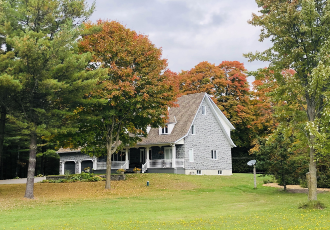
Considerations When Buying Rural Property
Ah, the countryside! The mere thought of owning a rural property brings images of sprawling landscapes, serene environments, and a connection to nature that you just can't get in the hustle and bustle of city life. But let's not put the cart before the horse; buying a rural property is a significant investment and comes with its own set of unique considerations. From understanding the lay of the land to navigating zoning laws, there's a lot to ponder before you can kick back on your porch and enjoy the sunset over your acres of freedom.
We'll walk through the key factors to consider when purchasing rural property. Whether you're dreaming of a quiet retreat, a farming venture, or just space to call your own, we'll provide you with the knowledge and insights to approach this exciting journey with confidence and professionalism. Let's dive in and explore what to look out for to ensure your rural property purchase is as smooth and rewarding as possible.
1. Well Water Testing: The Lifeblood of Rural Living
Water is the essence of life, and when it comes to rural properties, it's often supplied by a well. Testing the well water is crucial to ensure it's safe for drinking and everyday use. Here are the key reasons why well water testing should be at the top of your checklist:
Quality and Safety: Well water can be contaminated with bacteria, nitrates, heavy metals, and other pollutants. Regular testing helps identify potential health hazards.
System Integrity: Testing can also reveal issues with the well's structure or the water delivery system, ensuring you have a reliable water source.
2. Navigating Septic Systems: Waste Not, Want Not
Unlike urban areas with centralized sewage systems, rural properties often rely on septic systems for wastewater treatment. Understanding the condition and capacity of the septic system is essential:
Inspection and Maintenance: Ensure the system has been regularly inspected and maintained. A malfunctioning septic system can be costly to repair or replace and can cause environmental damage.
Capacity vs. Usage: Verify that the system's capacity aligns with your anticipated usage, especially if you plan to expand the property or increase occupancy.
3. Understanding Zoning Laws: Know Before You Grow
Zoning laws dictate what you can and cannot do on your property. They can impact your ability to build structures, operate a business, or use the land for agricultural purposes. Here's why you should pay close attention to zoning:
Future Plans: Ensure the property's zoning aligns with your vision. Want to build a guest house, barn, or workshop? Check that these additions are permitted.
Local Ordinances: Familiarize yourself with local regulations regarding noise, light pollution, and other factors that could affect your rural lifestyle.
4. Conservation Restrictions: Preserving Your Piece of Paradise
Conservation easements or restrictions can protect natural resources but may also limit your use of the property. They're crucial for maintaining the land's ecological value but can impact development plans:
Permanent Restrictions: Understand that these restrictions are often permanent and can limit future changes to the landscape or structures.
Benefits: There can be tax benefits or incentives for maintaining conservation restrictions, contributing to the preservation of the land's natural beauty.
5. Dive Into Pools: A Splash of Consideration
If your dream rural property comes with a pool, consider it a luxurious bonus, but don't forget the upkeep. Pools require regular maintenance, and in rural areas, this might involve additional challenges, such as accessing water or managing the surrounding landscape.
In conclusion, purchasing a rural property is an exciting venture that comes with its unique set of considerations. Armed with this knowledge, you'll be able to navigate the complexities of rural property acquisition with confidence and make informed decisions that align with your lifestyle and aspirations.
